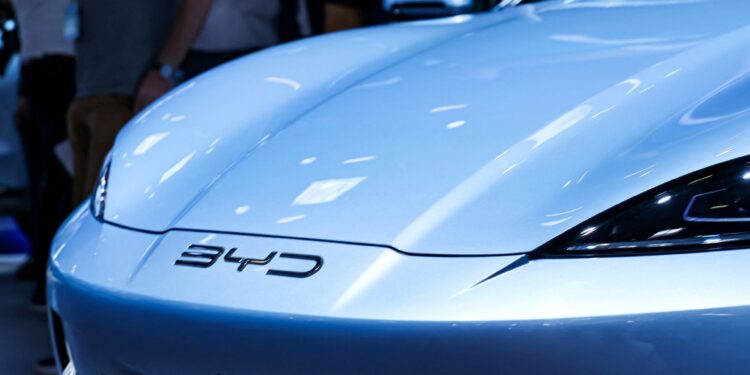The European Commission voted by a majority of its members today, Friday, on the decision to raise customs duties on Chinese electric cars to 45% from the current 10%, in a decision that could fuel a trade war between the two sides, according to what Anadolu Agency reported.
The Commission stated in a statement that the decision applies for a period of 5 years, starting from the end of this October, at a time when Germany warned that the decision may fuel a cold trade war with China.
The European Union believes that the Chinese government supports the country’s electric car industry, which conflicts with fair competition and cross-border trade.
While China has denied on more than one occasion any support it provides to electric car manufacturers in the country, it has threatened that any European decision to raise duties will be matched by a Chinese decision on imports coming from the bloc.
Following the vote, German Finance Minister Christian Lindner wrote on the social media platform X: “The EU Commission should not spark a trade war.”
According to Bloomberg, Germany was among five countries in the European Union that voted against the step to raise customs duties, fearing that it might lead to retaliatory measures against car manufacturers that invest heavily in China.
On the other hand, German automaker Volkswagen described the European Union’s vote to impose heavy additional customs duties on electric cars coming from China as a “wrong approach.”
“We stand by our position that the planned tariffs are the wrong approach and will not improve the competitiveness of the European automotive industry,” she said in a statement.
Before the decision, Hungarian Prime Minister Viktor Orban warned on Friday that the European Union was heading toward a “cold economic war” with China, referring to customs duties on Chinese electric cars.
Hungary has become an important trade and investment partner for China during Orban’s term, in contrast to some other countries in the European Union that are considering becoming less dependent on the world’s second largest economy.



